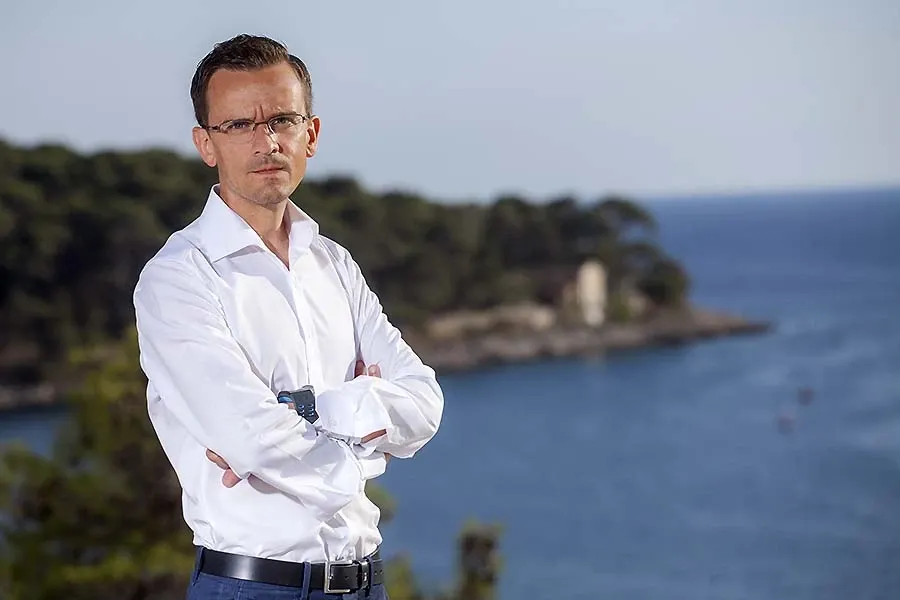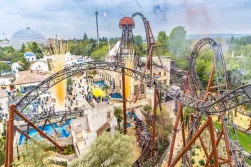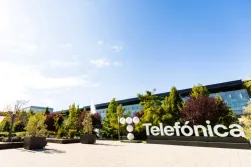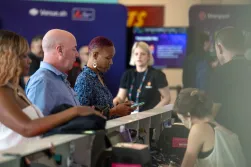On the occasion of celebrating 70 years of the tourist company Jadranka, we talked with Marko Lukičić, member of the Management Board of Jadranka Grupa about ICT solutions and the impacts they have on the business. Lukičić emphasizes that the Group has made certain strategic decisions and the first one was to establish a private data centre based on virtualization technology.
According to Mr Lukičić, two years ago, they started the complex and ambitious implementation project of the new system of support for hotel operationalization. Now, when the system has gradually entered the stabilisation phase, projects to help modernise and improve marketing and sales capacities have begun. Primarily, this concerns system implementation for CMR, which will help the Group automate processes such as marketing, sales, central reservations office and create a central guest data repository.
Jadranka is celebrating its 70th anniversary, how important is the role of IT solutions in the tourism business?
Every modern company is aware of the digital transformation. It does not imply the pure implementation of modern IT solutions; it implies changes in management, business and operational models of the company caused by the evolution of technology.
Jadranka Grupa is today celebrating 70 years of its primary business activities. During that time, the Group has experienced numerous transformations, endured difficult times and, finally, began a new transformation. The newest transformation has brought changes within the business models, shifts within services and a redirection towards new segments of the market. Here I am referring to our offer of luxury service, the backbone of it being the newly built 5 star hotels. But, at the same time, the hotel industry is undergoing changes as it is distancing itself from traditional interests, just as guests are changing their ways of behaviour. We are also witnessing the emersion of distracting technological companies, like Booking.com, Expedia.com and others. Having that in mind, for the successful transformation, it is crucial to understand the new, technology induced factors of today’s business. In short, IT that is becoming digital transformation in practice has become the factor of a company’s survival in the future.
What solutions do you use?
Two years ago we concluded that our existing IT infrastructure is at a point where it is important to opt for certain strategic decisions. The first was to establish a private data centre based on virtualization technology. It has opened capacities for the further development of the infrastructure, parallel with development activities of the Group that we have placed upon ourselves. The second was strengthening our optical infrastructure and replacement of our Wi-Fi infrastructure. Although accessing the Internet using the optical or Wi-Fi infrastructure is a dominant service for our guests, we see it more as a foundation for our future modern, digital services. Therefore, strengthening this infrastructure will be in our focus in further years. Two years ago, we also started the complex and ambitious project of implementation of the new system of support for hotel operationalization. Now, when the system has gradually entered the stabilisation phase, we have started projects to help modernise and improve marketing and sales capacities. Primarily, this concerns system implementation for CMR, which will help the Group automate processes such as marketing, sales, central reservations office and create a central guest data repository.
Recently, we have also been working extensively on our energy strategy. Nature was given to us by our ancestors and we need to save it for future generations. We think we have a duty towards everyone and ourselves to maximise our efforts in minimising and eliminating all of harmful effects on nature. Today there are very interesting ideas about conserving, managing and effective usage of energy. Currently, we are considering them within our five-year plan of expanding our portfolio and business. Moreover, together with smaller companies, we started few smaller pilot projects where we started development and design of the system. Today, the projects are developing nicely and becoming quality solutions. I would also like to point out the system that integrates internal marketing tools as digital signage, digital guest directory and mobile applications.
How do you manage to coordinate tourist requests and how does IT help?
When it comes to technology, the times when the only tourist requests were to provide cell phone charger, extension cord or setting for getting online are long gone. Today’s requests are more indirect, abstract, making them more complicated. In order to target these demands successfully, we have to understand the phases of maturity every technology goes through. In the early phases, this kind of technology undergoes numerous different interface changes, which cause nightmares for the system integrator. In the later phases, we witness standardisation. For the service industry, it is crucial to avoid the situation when the “nightmares“ that integrators are experiencing affect the guests. More specifically, it is important for our guests that they have no difficulties connecting to Wi-Fi no matter which device they are using and what kind of standard it supports. It is important for them to have the option of using the television in the room as an extra display, to connect their music to the hotel room audio system, or for example, to start watching a certain video in the room, on the television, and to continue watching on their tablet on the beach. Having in mind technology and how it keeps further developing, an example would be voice interaction with intelligent systems, we are aware that the requests will become more and more complex.
Significant portion of today’s tourism management take place on social media. How do you harmonise the needs and requests of tourists when it comes to digital marketing and social networks with the help of IT solutions?
Digital marketing is an extremely complicated domain and I have to be honest and say I have trouble to single out, even globally, a couple of examples in which the true potential of digital marketing is exploited. I would say that digital marketing today is merely an implementation of already existing marketing solutions, using only mechanisms as user activity monitoring. I truly believe that digital marketing is still in its “hype“ phase, considering the features that are still awaiting release. In the future, a base for digital marketing will be found in the synergy of internal and external data, combined with some form of artificial intelligence. The goal will be to find optimal marketing and sales activities targeted to the client as an individual. But, as long as digital marketing is considered as just posting on social networks, I am aware that we are still miles away from utilising the full potential of digital marketing. When we talk about tourists, it is important to have in mind that people using social media create personal and digital zone. Some have the need to keep it small, letting in only the closest people in their life, but others not only have a vast and open zone, but they also let in companies, brands, organisations and others. Certain companies do try to penetrate those personal zones in order to create long-term relationship with an individual. An example can be Marriott, which in certain hotels offers camera renting. In this concept, the hotel will edit the guest’s video into a 360-degrees video that can even be published on the webpage or social media, if the guest allows it. But is this really what the guest wants and needs?
How much has been invested so far in the IT solution you are using, and which segments do you consider being most important?
The IT solution, or IT solutions as such, is merely a part of the digital transformation of our company and it would be imprecise and incomplete to discuss a particular IT solution without looking at the bigger picture. But, if I have to quantify, I would say that for a “basic IT“ per room, we are spending two times less than other leading hotel companies on the Adriatic. The question that comes to mind is: “How, on Earth, can we allow ourselves the luxury of not investing at a time when we are transforming the company?“ But, I will have to explain that we are investing carefully, systematically and strategically rather than not investing. There are numerous IT solutions on the market today basing their success on experience with past clients, but in practice they turn out to be unreachable. Our approach resists needless investments and our focus is on what truly is important. That is why we have not only caught our competitors, we have surpassed them when it comes to the usage of technology.
What are further plans related to IT solutions development within the development of the tourist offer?
At the moment, there are still no affirmative requests when it comes to more modern digital services. But, there are also a great number of digital services that are being tested by the world’s leading hotel companies, and surely some of them will become an inevitable part of our tourist offer. Although, there might not be that many digital services that tourists will consume directly, my thoughts are there will be background digital services that will help the ones providing their tourism services. In this constellation, at this moment, it is of an extreme importance for us to continue to establish a technological framework for tourism services in the future.



















